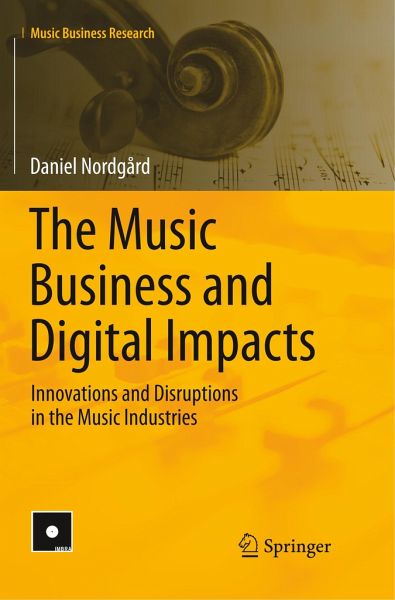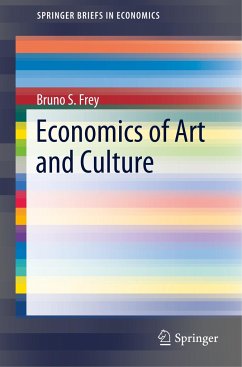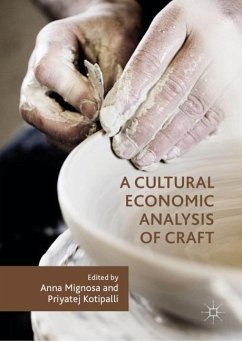
The Music Business and Digital Impacts
Innovations and Disruptions in the Music Industries
Versandkostenfrei!
Versandfertig in 6-10 Tagen
68,99 €
inkl. MwSt.
Weitere Ausgaben:

PAYBACK Punkte
34 °P sammeln!
This book provides rare insights into the difficult and complex dialogues between stakeholders within and outside the music industries in a time of transition. It builds on a series of recorded meetings in which key stakeholders discuss and assess options and considerations for the music industries' transition to a digital era. These talks were closed to the public and operated under the Chatham House Rule, which means that they involved a very different type of discussion from those held in public settings, panels or conferences. As such, the book offers a much more nuanced understanding of t...
This book provides rare insights into the difficult and complex dialogues between stakeholders within and outside the music industries in a time of transition. It builds on a series of recorded meetings in which key stakeholders discuss and assess options and considerations for the music industries' transition to a digital era. These talks were closed to the public and operated under the Chatham House Rule, which means that they involved a very different type of discussion from those held in public settings, panels or conferences. As such, the book offers a much more nuanced understanding of the industries' difficulties in adjusting to changing conditions, demonstrating the internal power-struggles and differences that make digital change so difficult.
After presenting a theoretical framework for assessing digital change in the music industries, the author then provides his research findings, including quotes from the Kristiansand Roundtable Conference. Following from thesefindings, he develops three critical concepts that explain the nature as well as the problems of the music industries' adaptation process. In conclusion, he challenges the general definition of crisis in the music industries and contradicts the widely held view that digitalization is a case of vertical integration.
After presenting a theoretical framework for assessing digital change in the music industries, the author then provides his research findings, including quotes from the Kristiansand Roundtable Conference. Following from thesefindings, he develops three critical concepts that explain the nature as well as the problems of the music industries' adaptation process. In conclusion, he challenges the general definition of crisis in the music industries and contradicts the widely held view that digitalization is a case of vertical integration.














